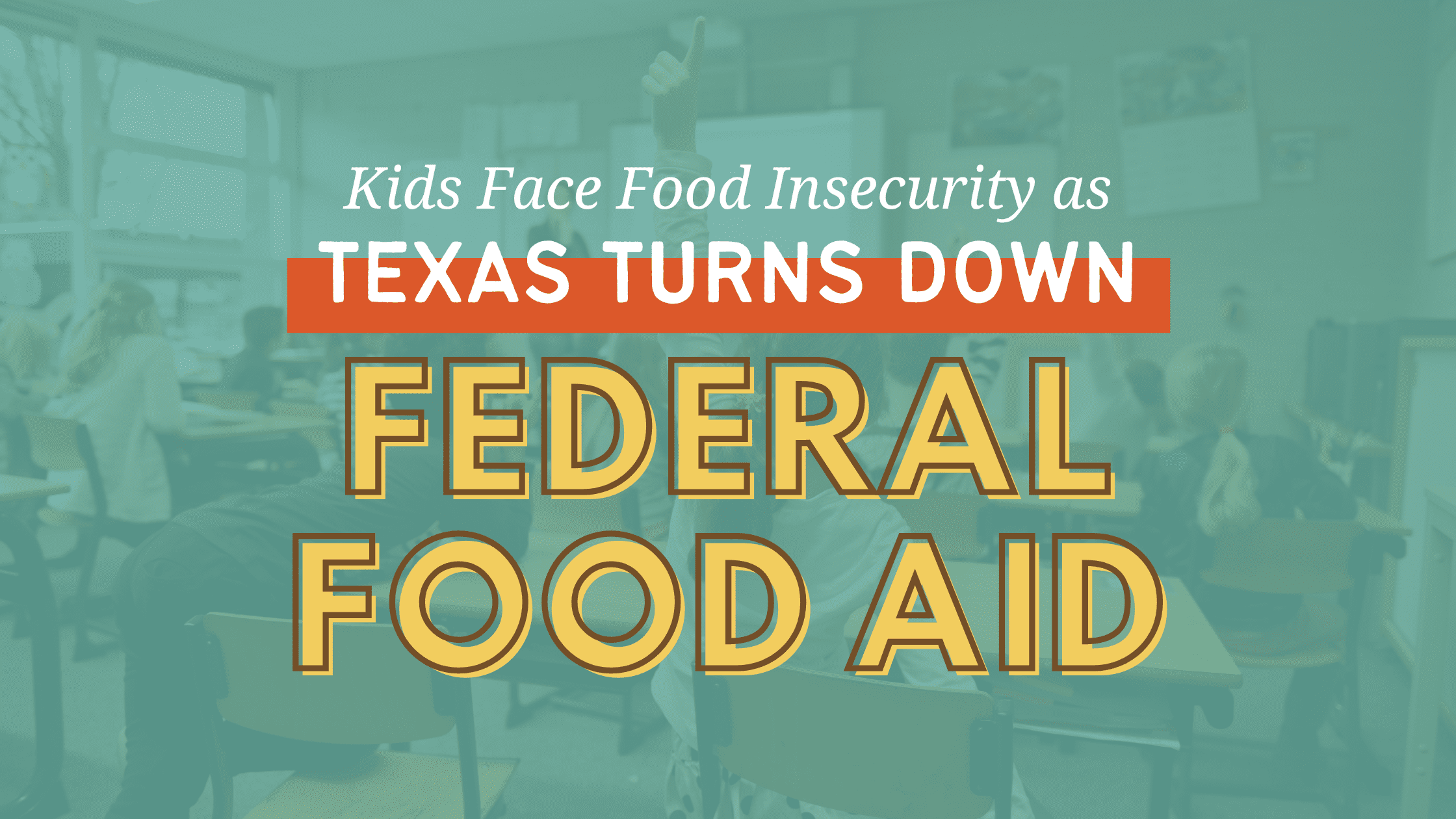Summer is quickly approaching, and with it comes a challenge for children who usually get free or reduced-price meals at school: food insecurity. The Summer Electronic Benefit Transfer (EBT) program, a federally-funded program, aims to help low-income families feed their children when school is out.
This EBT program is a vital effort supported by our tax dollars. Recognizing that access to nutritious food is a basic right, the initiative provides families with an EBT card loaded with funds for buying healthy food to help children stay well-fed during school breaks.
Texas is one of 15 states that declined to participate in the Summer EBT program this year, essentially rejecting around $350 million in federal food aid that Congress had already allocated. When Texas opted out, it sparked a debate about our collective responsibility to all children. Reasons for this decision might include budget issues, administrative challenges for state agencies that are already underfunded and backlogged, or different priorities at the state leadership level, but the lack of clear communication leaves many questions unanswered. This choice is more than an administrative or financial decision; it is a reflection of our values and priorities as a society, especially in how we support our most vulnerable.
Texas’ decision has significant consequences for children from low-income families and greatly increases their risk of food insecurity. This threatens not only their physical health and nutritional status, but also their educational progress and long-term health.
This decision also puts more strain on community resources like food banks and social services, as they try to compensate for the absence of the Summer EBT program.
The effects are even more severe among children of color, who often face higher rates of food insecurity and poverty due to systemic inequalities. The lack of the Summer EBT program intensifies these disparities, increasing the risk of nutritional gaps during the summer. The disproportionate impact on children of color can be understood through several lenses:
- Disproportionate Food Insecurity: Texas has one of the highest rates of child food insecurity rates in the country. Children of color face higher rates of food insecurity than their white peers, with studies consistently showing more hunger and food insufficiency among Black and Latino families. The Summer EBT program helps lessen the disparity by guarding against the risk of nutritional deficits during the summer months.
- Compounded Inequalities: Child hunger compounds other systemic challenges that families of color face, such as accessing health care, finding affordable housing, and securing employment opportunities. Without the nutritional support from Summer EBT, these families encounter even more obstacles to financial security, which deepens existing inequalities.
- Health Disparities: Children of color already face higher rates of diet-related health conditions such as obesity, diabetes, and asthma. Inconsistent access to nutritious food during the summer can increase their vulnerability to these conditions, worsening health disparities. This risk becomes even more pressing with the sudden loss of health insurance due to Medicaid unwinding.
- Educational Achievement Gaps: Nutrition is crucial for cognitive development and academic performance. When children face hunger during the summer, it can hold back their readiness to learn when they return to school, possibly widening the achievement gap between children of color and their peers.
Texas’ decision not to participate calls for a reevaluation of how we address child hunger and food insecurity. It highlights the ongoing need for state and local governments, nonprofits, and community organizations to find new policy solutions and support systems to ensure all children have the nutrition they need for healthy growth and development – particularly when they’re not in school. Other states that have opted out of Summer EBT, such as Louisiana and Iowa, are already working on alternatives to protect children. This is not just a policy or budget issue; it reflects our commitment to the future of every Texas child.
